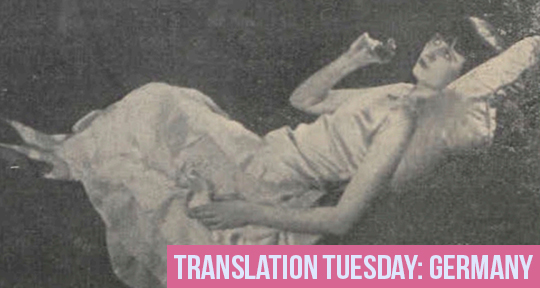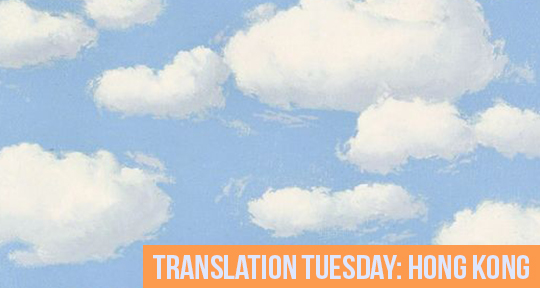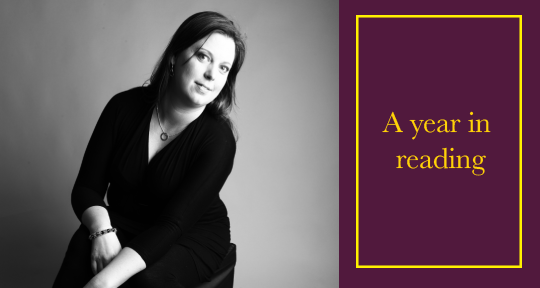Just in time for the holiday season, we bring you a different kind of Christmas story for this week’s Translation Tuesday. “My Christmas: Memories of a Transvestite,” written by H.W. Burg and translated from the German by M.M. Pinky, was originally been published 100 years ago, but remains startling in its immediacy. Through a series of Yuletide reflections, the author, assigned male at birth, relates their lifelong journey of coming to terms with their innate femininity. The quest for authentic gender expression expands into a tender exploration of self-discovery, longing, and the profound human need for pure acceptance. In a political climate where transgender rights seem to be an increasingly easy target, this short memoir reminds us why fearmongering rhetoric obscures the simple truth of people who, like anyone else, are searching for connection and love.
It is Christmas Eve again. Alone, I stand at the window of my quiet bachelor’s room and look into the cold winter night. Hoarfrost covers the trees. Hedges and bushes glisten in the light of the streetlamps as if the sky descended to Earth with thousands of little falling stars on this holy night. How beautiful it is when nature unfolds its wonders and no human hand disturbs its mysterious play.
The sound of “Silent Night, Holy Night” floats by my ears from the neighboring house. Through the thin window curtains, I see the dark outline of a Christmas tree and the bright glow of its lights. I close my eyes and imagine how those gathered around the tree join hands in love, how the quiet happiness of peace transfigures their eyes. I know the people. Quiet, simple, content people, who help each other carry the heavy things in life. How beautiful it is when two hearts find each other and love lifts them up from the vices of everyday life.
On my table there too is a Christmas tree. It is small; I bought it today, ready-made with decorations and candles already on it. As I’m about to strike a match, a deep sadness creeps over me. I am suddenly gripped by a desolate loneliness with a force I haven’t felt for some time. Lighting the candles is impossible. My eyes fill with tears and I have to sit down with my head against the table. My deep misery grips me with terrible strength, and I begin crying, crying bitter tears, today—on Christmas Eve—while everyone rejoices and celebrates the season of joy.
Once my tears dried, I sat dreaming, pondering before my Christmas tree, from which no light fell into my saddened soul. Memories from days long ago unfurled within me, memories of celebrations of Christmases past. In my mind they all lay before me, and of the long list, four stayed in my mind with particular clarity. READ MORE…




